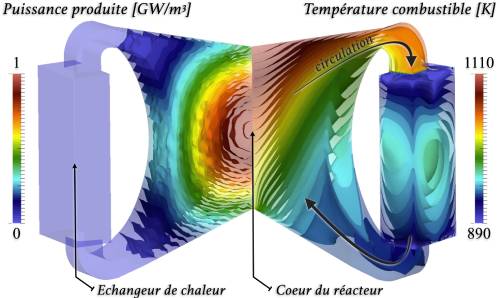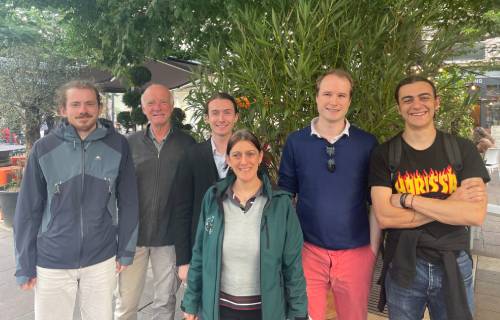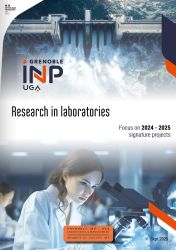
Today's reactors, the vast majority of which are water-cooled, use uranium-235 as their main fuel. However, uranium-235 represents only 0.7% of natural uranium, requiring prior enrichment and limiting the available resources. In addition, these reactors produce long-lived radioactive waste, which is vitrified and stored — except for plutonium. In response to these challenges, MSRs offer a promising alternative.
Unlike solid-fuel reactors, MSRs use a liquid fuel: a molten salt in which the fissile material is dissolved. This principle enables more flexible fuel management and facilitates waste reprocessing. Moreover, MSRs can operate on a variety of fuels, including uranium, thorium, plutonium, and even some materials currently classified as nuclear waste from other reactors.
A concept with multiple advantages
The work carried out at the LPSC by the team led by Elsa Merle, a professor at Grenoble INP – Phelma, UGA, focuses on fast neutron MSRs, which offer major advantages. Unlike conventional thermal-neutron reactors, these systems make better use of fuel while reducing the production of very long-lived waste. “Plutonium and other actinides produced in current reactors can be reintroduced into the circuit and burned, transforming waste that remains hazardous over hundreds of thousands of years into residues that are much easier to manage," explains the team of scientists.
Another major advantage is the intrinsic safety of MSRs. "In the event of a malfunction, the liquid fuel can be redirected to storage tanks where it cools passively, eliminating the risk of core meltdown or any other energetic reaction that could damage structures and therefore lead to the release of radioactivity beyond the site. This design drastically reduces the need for complex safety systems and lowers the risk of serious accidents."

Research at the heart of energy challenges
The LPSC team is conducting advanced modelling and simulation work to study the behaviour of MSRs at various scales, from neutron transport within the reactor core to their integration into a broader energy system. The team is particularly interested in the regeneration of fissile fuel, a key parameter for ensuring the long-term viability of nuclear energy. The team is also highlighting the exceptional versatility of this reactor type, crucial for a diverse energy portfolio that incorporates a broader range of renewable energy sources.
At a time when global energy demand is quickly rising and fossil fuels must be phased out, MSRs are emerging as a sustainable solution. Their ability to breed more fissile material than they consume could offset the increasing scarcity of natural fissile uranium, meet growing energy needs, and reduce the risk of accidents through their enhanced safety.
An international reputation
For a long time, LPSC researchers were the only ones working on this topic, but their expertise has since been recognised internationally. As early as 2008, they were the first to propose the concept of a fast-neutron MSR to the Generation IV International Forum. Since then, the number of initiatives has grown significantly: China launched an experimental programme in 2013, and numerous start-ups worldwide, including in France, are investing in the development of small modular reactors based on this technology.
The laboratory is involved in numerous collaborative projects with manufacturers such as Framatome and Corys, European consortia and the International Atomic Energy Agency (IAEA), and French companies including Orano, Naarea, Stellaria, and EDF. It also contributes to training specialised engineers, ensuring knowledge transfer in this strategic research field.

Close collaboration with industry and academia
LPSC's research relies on a network of collaborations with industry and academic institutions. The laboratory works closely with partners such as IJCLab laboratory in Orsay, Framatome, Orano, and the CEA to overcome technological barriers in MSRs design, particularly regarding material corrosion and fuel treatment.
LPSC is also involved in several European projects and collaborates with international research laboratories to deepen understanding of the physical and chemical phenomena involved in MSRs. Through these partnerships, the team actively contributes to scientific progress and the development of technologies that could be integrated into future generations of nuclear reactors.
Thanks to these advances, MSRs could play a key role in the global energy transition, offering an abundant, flexible, and safe energy source capable of meeting the challenges of the 21st century.
*CNRS / UGA / Grenoble INP - UGA



